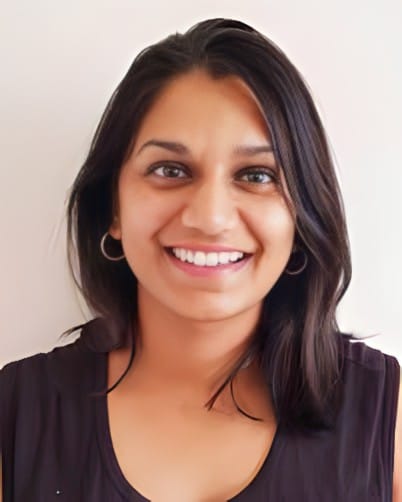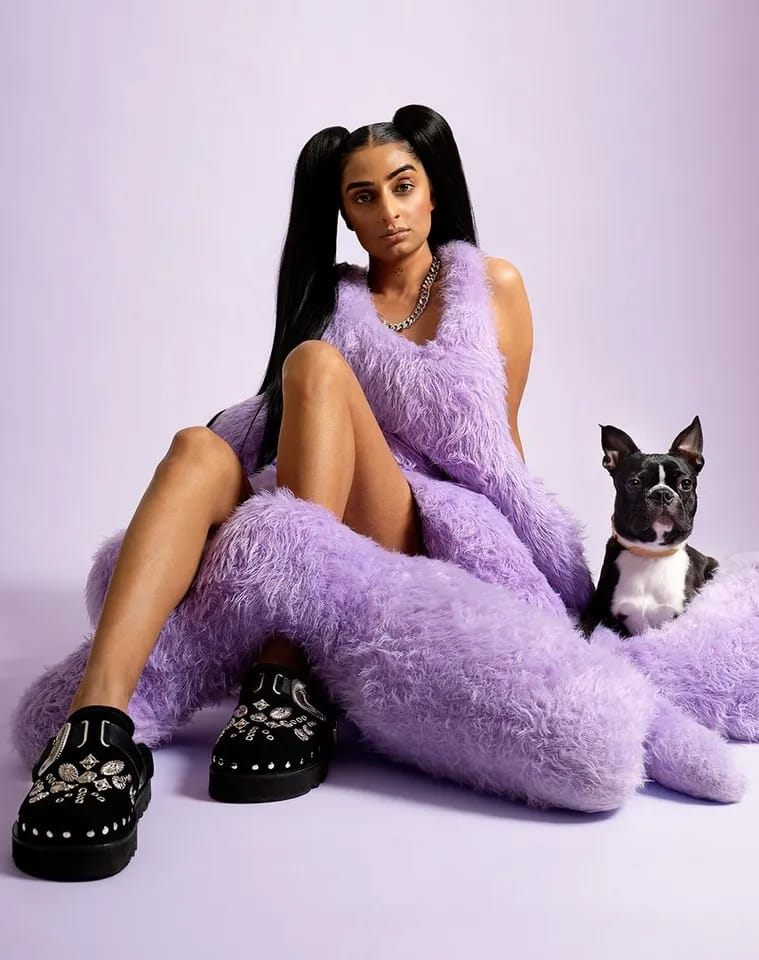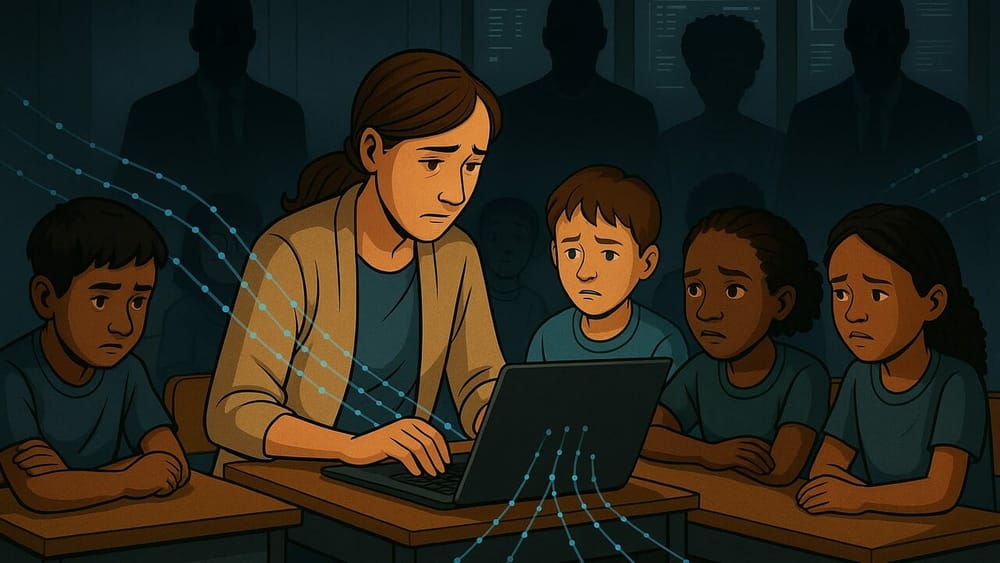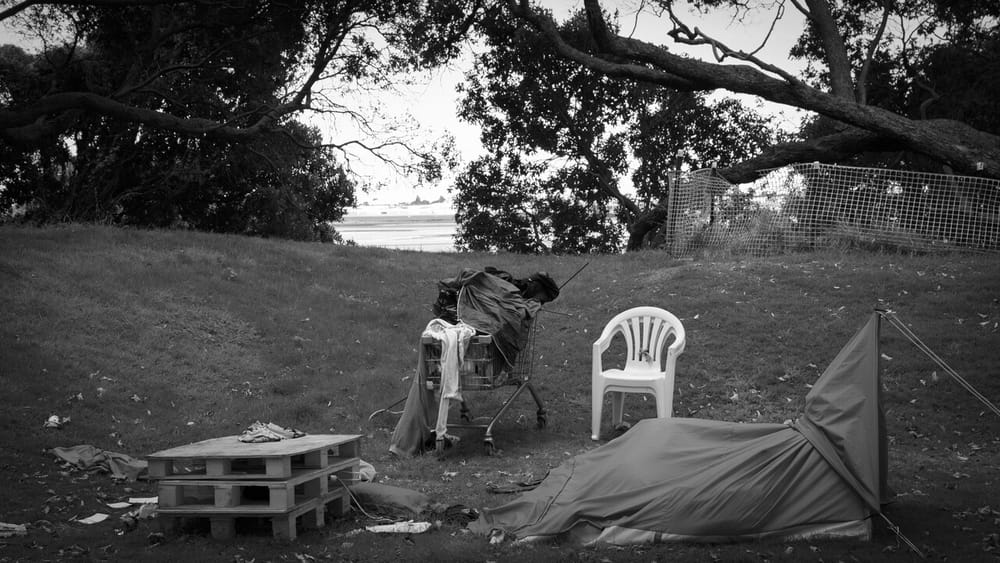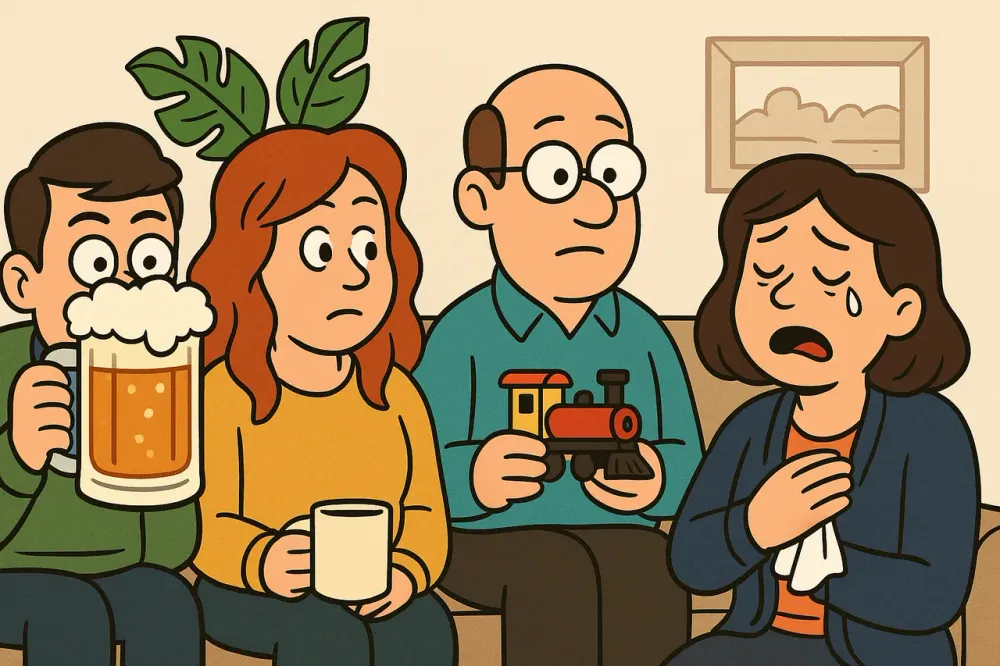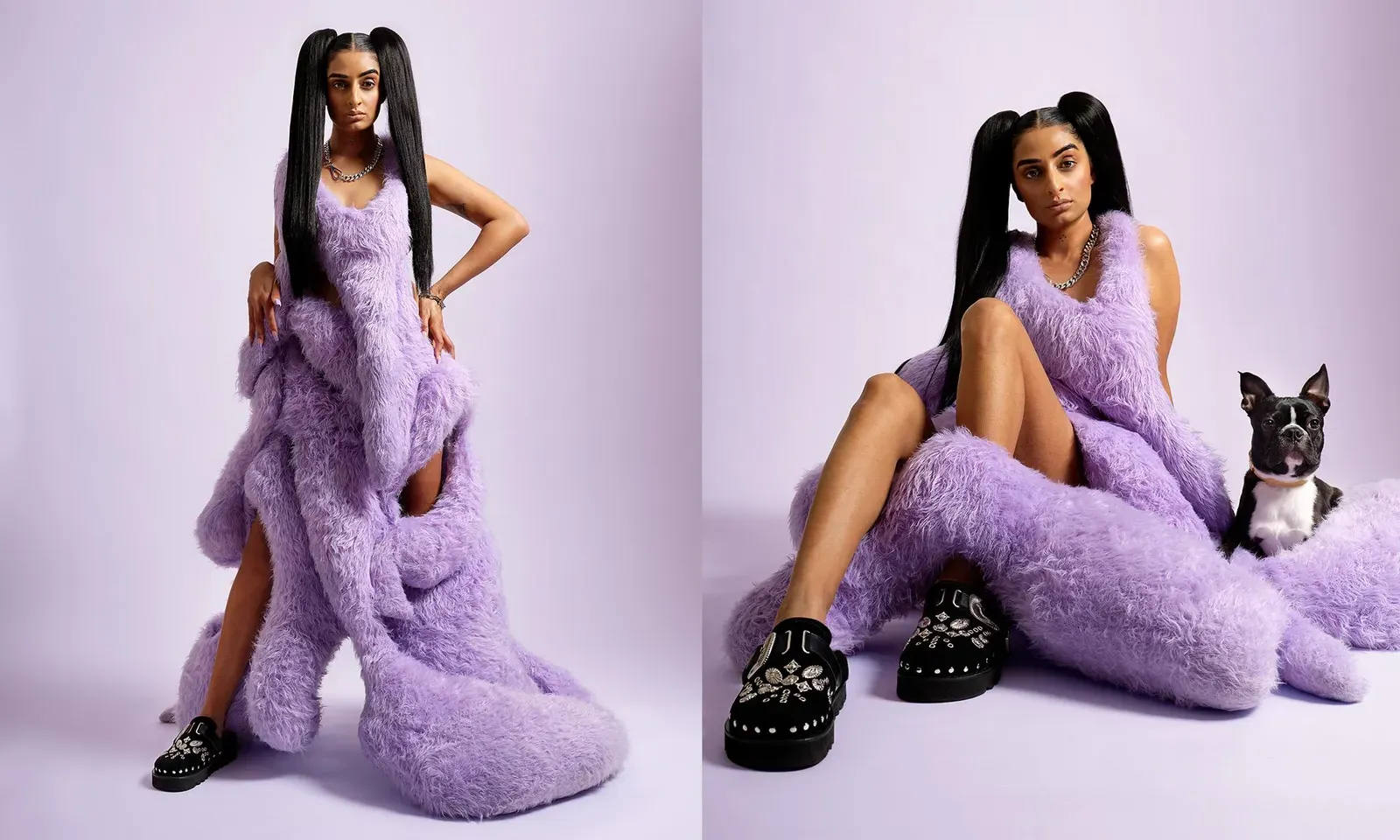
In the face of the many seemingly unsolvable problems of the world, it takes courage, faith and determination to take on the role of a superhero. Colours of a Changemaker is a series of interviews with Black, Indigenous and People of Colour from around the world who are using their vocation to create social and environmental change. As Gandhi once said, we must be the change we want to see in the world, and these changemakers are doing just that through their art, music, written works, social platforms and much more.
Anita Chhiba is the founder and director of Diet Paratha, an Instagram page that she started to empower, celebrate and showcase South Asian creatives from across the globe. The page, which is filling a large gap in representation for South Asians in the media and creative spaces, has garnered thousands of followers and overwhelming support from the community. In this interview, we speak about representation, changes that still need to be made and how Diet Paratha is helping Brown people across the diaspora embrace who they are.
As a follower myself of your platforms, both your personal and your Diet Paratha one, I want to ask you: when you first launched Diet Paratha, what was your vision behind it and how did you decide that that was why you were going to challenge the status quo?
It wasn’t a decision to challenge the status quo, initially. When I first started it, it was kind of like a mood board. I mean, it still is a mood board, but when I first started it, it looked really different; it was more like a collection of vintage Bollywood posters and stuff like that, and looking back on that they are quite sick... have you seen vintage Bollywood posters?
Yeah, I actually looked right at the beginning of your page and I was like, “It has really evolved.” Your feed has super evolved, and it’s beautiful. It’s really cool to see that evolution.
Fully. I started [with the vintage posters] because I kind of thought it was the most palatable thing that people would be interested in because the illustrations are so sick. And then as I deepened my search for other creative work done by South Asians I started to unearth this whole world of other people that I could relate to that were South Asian, that were doing stuff that wasn’t necessarily connected to the culture. [It was] like being Brown was enough, and [we were] just doing work that didn’t have any kind of cultural tie back to it. And then I just started discovering all of these other illustrators and photographers and people working in fashion and stuff that was more aligned to my specific interests. I don’t even watch Bollywood films, I’ve seen, like, two.
Me too! [Laughs]
It’s almost like [I had] this desperate attempt to connect with my culture and who I am. So I moved away from [Bollywood posters], which I didn’t even have any interest in. I can totally appreciate how amazing these posters are—and they are great; I’m not denying that—but it started there, it evolved to here and now here we are. It’s just like that community of all of these creatives all around the world that are doing amazing stuff, but also people that appreciate the culture or appreciate us as a people.
Yeah, that was something I wanted to ask as well. The fact that you have created this platform and you’ve brought all these creatives together: what’s the response been like to Diet Paratha? Have you experienced, I guess on the flip side, any racism in response to changing the lens?
In short, no. The response from the community has been really incredible because this page is for South Asian people, at the end of the day. And other South Asian people, I think, are finally being seen through a lens that isn’t immediately connected to culture. For some reason, there is so much work done by Brown people that is culturally connected in Western spaces, and I think that it’s just really refreshing not seeing that sort of stuff; there’s so much of that sort of stuff around, and while it’s hugely important, it’s also enough just to be who you are and have [other] interests; our culture doesn’t define who we are.
Yeah, 100 percent.
It doesn’t define our interests, and I think just people seeing other Brown people occupying a Western space totally stripped of any kind of cultural identity is really powerful.
I totally agree with that, because I think you have really shifted people’s lenses, and you have really challenged how South Asian people are seen. It’s not all the stereotypical spaces that you would see us in. I’m really interested in what you have to say about society: If it really valued and respected and truly cared about the contributions of South Asian people in creative spaces, what do you think the creative and fashion industry would look like?
It would be a true representation of how we are as a society. It wouldn’t be this mirror image of just White or White-passing people. To be honest, fashion looks diverse from the outside. I think casting is done quite poorly and I don’t think it’s a true representation of what society actually looks like. However, people are definitely taking that into consideration now through and through. What isn’t so clear is who they are capitalising off, you know, their external ethos; their internal structures are very different stories. I’ve got lots of projects and stuff coming up; I’ve been in Dazed and Highsnobiety and all of these other [platforms], and it’s only other South Asian people that make these things happen, and that kinda proves that your external ethos needs to match your internal structure. A diverse makeup of people on the inside are going to push this stuff forward because, at the end of the day, White people, unfortunately, don’t care enough to. BIPOC care because those are the people that push these conversations forward, because they quite literally have skin in the game, you know?
That’s so true. That’s a really beautiful way to put that, actually. I guess it means more, right? It means more to us to be seen, and we want to be understood in that way as well. That also nicely leads into the next thing that I wanted to ask you: Diet Paratha seeks to really fill this crucial gap in representation, and you’ve previously said that you wanted to “flip the lens” and you wanted to create these positive representations, especially of the MENASA population. For you personally, when was the first time you felt truly represented and what was that like for you?
Damn, that’s a hard question, because there’s so little to actually hold onto. Honestly, maybe Bend It Like Beckham. That did incredible things for South Asian people all over the world in terms of representation; that was all the way back in 2002—so as sad as it is, I want to say Bend It Like Beckham. But [the protagonist] she’s a football player and she lives in England; I’ve got nothing in common with her, do you know what I mean? I guess that kind of ties back nicely into the point that I was making before around the fact that there is so little representation that when [there is any] we hold onto that. On the flipside, of that, that stuff’s held to a really high standard and it gets ripped apart, because people see these small scraps of representation and they think that all their hopes and dreams need to be represented in that one body of work.
I mean, in India alone, there are over a billion people, so we can’t expect all of our stories to be told in one body of work. So it’s hard to really pinpoint, but the first time I really felt seen, I think, was Bend It Like Beckham. I think that that film did magical things for me, so I’m sure it did for so many others, but it just had nothing to do with [laughs] my reality; I’m not interested in sports. But, I mean, generally we are leaps and bounds from there, [but] unfortunately, we are still in an overlooked and underrepresented group in mainstream media, even in England [where] we’re the second largest ethnic group.
The community is strong, like, really strong. I couldn’t have done what I did in New Zealand, because I think we’re a really young generation; we’re really only just up to third generation in New Zealand, but over here [in England], they’re onto the fourth and often there are much stronger foundations and privileges that come with that. The South Asian communities are also really segregated in New Zealand.
I would agree. I can totally relate to that as well. I’m like, “where are you all?” [laughs].
I think in terms of creativity, there’s absolutely creative South Asian people in New Zealand, but the community is not as strong as other communities, like the Pacific Island or Māori, who really band together and support each other.
Yeah, that makes me think as well, in terms of the world being unfair for the South Asian diaspora or the MENASA population. For you, when did you realise that the world was unfair for us as a group of people?
Seriously, when I was like 24 or 25. Man, I’m 31, you’re 34, so [it] could be pretty similar timing, perhaps, but we didn’t have the internet. I look at my cousins now and [they] range between 18 and 25, and they are so clued up; they have the vocabulary to have these conversations if they’re challenged from a racial standpoint; they understand White privilege; they understand their position as a Brown person in New Zealand. And I had to unlearn all of that stuff; I’m still on the journey now.
Yeah, we’re literally decolonising our minds and our tongues and, you know, our whole being, really.
Absolutely. I grew up most of my life resenting who I was culturally, but if you told me when I was 15 that it was going to be cool to be Brown, I would literally have believed the dinosaurs were going to come back before that; there was no way in hell you could’ve told me that and I would believe that, because it was just so crazy. My friends were all White and, I just, I didn’t understand. But looking back on it, when I actually think about how high school went for me—I left high school when I was like 16 or 17—looking back on it, I understand that it was systemic racism that was really just throwing my whole experience off and my friends’ lack of understanding and just, you know, casual racism seeping in and subconsciously having a much greater effect on me than I could ever have imagined at the time. Yeah, it’s been a journey; we’re all on different journeys, and it’s all about what information you have access to. We curate our own news feeds and also educate our parents about things they really aren’t aware of. I think they are aware of racism on the whole, but I don’t think they really understand that it’s not just racism when it happens to South Asians. It’s an exhausting journey for sure. How about yourself?
I can really relate to that whole, you know, it just wasn’t cool to be Brown. I, 100 percent, similarly to you, resented it—you know, resented looking Brown, feeling Brown, trying to hide my Brownness. And I look back and I’m really sad about that, and it is 100 percent that unlearning journey more than it is learning. One of the industries that really affected me was the fashion and beauty industry—never seeing myself represented, never seeing Brown people as beautiful. Your platform is really challenging that and is really reshaping that. Are there other people or other platforms that you think are also leading the way and shifting our gaze, alongside your platform?
For sure, there’s so many of them. One I really want to talk about is actually a podcast called What Is This Behaviour? and it’s just three mates—two of them are brothers and one’s just their mate—and they just talk to people, South Asians, and I think their whole tag line is, “South Asians going against the grain.” They are doing a fantastic job at unearthing these stories and having these really much-needed conversations; really therapeutic. I know of one called Oru Mayil, and that is a Tamil platform to represent Tamil people because Tamil people are hugely underrepresented within South Asian communities, and they’re doing a really fantastic job. There’s another platform called Azeema. My platform really focuses on South Asians. I occasionally represent other people. [There’s] another platform called Daytimers, christened after the famous daytime raves from back in the day in the UK. So you’d bunk off school, [and] they’d do them in these warehouses, and your parents just think you’re at school or wherever. Look them up, Daytimers. They were just so famous in the ‘90s, and most South Asian people here that are in their late 30s, 40s, 50s can tell you that they’ve been to stuff like that and those are just incredible. Another really, really, really important one is South Asian Therapists; I don’t know if you follow that page.
Yeah, I totally follow that. I’m a therapist myself, so that speaks to me on every single level, personally and professionally [laughs]. I love them.
[The founder Raj Kaur is] an amazing woman. The way she takes childhood experiences that are exclusive to being South Asian, but also mirror other cultures, and sums them up so perfectly and in a 180 character word limit—it’s just second to none! Oh my god. So if you’re going to mention any platform, mention that one because she’s put in the work, you know; I’m almost therapised myself just through reading those tweets.
She makes it make sense, right? Like, those lived experiences that are so nuanced and complex for South Asians and no one else really understands. I did want to ask a little bit about performative allyship, especially for the South Asian diaspora. And obviously Black Lives Matter totally blew up last year and lots of people were saying they wanted to be better allies to People of Colour. I’m curious about whether you have seen a shift from performative allyship towards real allyship, or if you can think of an example where you’ve actually seen a genuine shift? Can you tell us about a time?
I can think of one example and it’s New Zealand specific: Maggie Marilyn, White-owned brand; hired White staff. External ethos: People of Colour. But there’s a whole section on her website about what she’s doing to dismantle the system, and I just thought that that is how you do it; that is how you put your money where your mouth is. That is how you are a true ally. It’s not just using People of Colour to write stories and sell your products; it’s giving back and really listening; that was one of her things.
So it’s emerging, but obviously there’s so much room for growth in that area.
New Zealand specifically... I think the conversation is much further behind in New Zealand than it is anywhere else in the world.
Why do you think that is?
I think it’s because we’re a younger country and, I mean, Māori people are still being absolutely taken advantage of. I don’t know why New Zealand and Australia are like this. I think it’s because each country, on the whole, is not very diverse; the Black population is very small, so our understanding of other cultures is still really, really far behind. And even myself: I didn’t really understand how far behind I was until I got over here [in England] and suddenly [there were] people from all different backgrounds and [I was] hearing their stories. But I think that’s not to say that the people aren’t there, but the country overall isn’t very ethnically diverse at all. I think that’s why, and also there’s many more people making noise over here as well.
I guess all this anti-racist or just the platforming work can be exhausting. How do you do this work without burning yourself out, without getting exhausted or, you know, losing hope that the change isn’t moving fast enough?
I think, because I specifically concentrate on celebrating the people, that it’s actually much more rewarding than activism. I wouldn’t say I’m an activist like Shaneel Lal—I don’t know how they do it; the abuse that they encounter is just revolting but the work they do is much needed— I focus on celebrating the efforts of the people, but they are doing really meaningful work on the front line and are open to much larger opportunities to be burnt out. I mean it is hard; it’s hard for all of us; it’s exhausting for all of us; but specifically in relation to Diet Paratha, it is actually quite rewarding.
Yeah, it’s joyous, and I inhale your content like oxygen [laughs]. It makes me feel so joyous and so proud in my Brownness and, I guess, for you as well, obviously since you’re creating all this content. What is something that you’re proud of in terms of what you’ve created? What’s something where your platform has contributed to something that you really own and feel proud of?
I think I’m proud of the community, because, at the end of the day, it’s a community page, right? It celebrates the people and showcases other people’s work, as well as my own. I think it’s more the fact that this isn’t just a Brown empowerment page—there are so many platforms like that, for Brown people as a whole—this page is specifically for creative Brown people. I’m really proud that this community represents creative excellence. I really feel like Diet Paratha is a home for South Asian excellence and creativity. And so other South Asians that are feeling underrepresented literally come here and they don’t need to look at a Bend It Like Beckham equivalent, or they don’t need to look at like some shoot of people in traditional outfits and feel like that’s all they have to hold onto, do you know what I mean? I only wear traditional clothing maybe once every two years. It really doesn’t have a hell of a lot to do with who I am as a person. So I’m proud of the community: it’s bringing people together and it’s creative South Asian people from all over the globe and putting people in one place and really spotlighting the talent for others to be discovered and for us to all to enjoy as a people, because, like you said, it really does do wonders for identity.
I think you’re so right. We’re more than the saris and the butter chicken and all of those stereotypes and so to see us in different ways, to see us in ways that take up space has completely changed me; it really has, and so for that, thank you, because I’ve been waiting my whole life [laughs] for a platform like this.
Oh, that’s so kind! In all honesty, it’s changed me as well. I’m just collating stuff that I needed to see myself.
What would you say to a young woman who wants to enter the creative industry, who was looking up to you, but she didn’t know necessarily where to start—like a younger version of you—what would you say to them?
Someone asked me that question the other day and I said, “Just don’t worry because it’s all going to work out better than you ever could have imagined it,” and I guess what that means is just, have the faith that you can do it. If you have an idea, act on it. And that’s what I want to do with events that I want to start hosting: get people in a room that want to be inspired and kind of like help cultivate their ideas. Just starting is going to be the best thing you could ever do and keeping at stuff.
So you’ve just got to really believe in yourself to start.
The main thing is starting, first. And then the second thing is just knowing that you can do it. Because you can, you know, you can. Faith is so important. I’m not saying there’s not going to be challenges, because it’s fucked up being a Person of Colour, you know? But there are communities that will help you, and Diet Paratha is one of them.
Yeah, which I think is the thing: if you’re a young woman who is wanting to enter the industry, there are now places that you can look to and say, “Actually, yeah, I can do this because someone else is doing it.” Finally, I just want to ask: with what you have created, where do you want to see this go? Where would you like to see this platform that you’ve created in 10 years from now?
To be honest, it’s kind of already happening, what I want to do, but what that is is brand partnerships and these big brands coming to communities like mine and platforming the people. They’re not trying to represent a campaign and benefit from that financially, because cultural groups are not here to be benefited from financially, and we’re not here for seasonal gain either, e.g. Diwali and stuff like that. It’s really about brands coming to platforms like mine and other platforms and helping platform the work that we are doing. Because we are already doing the work that they are trying to achieve.
You can follow Anita Chhiba on Instagram here, and you can check out Diet Paratha here.


